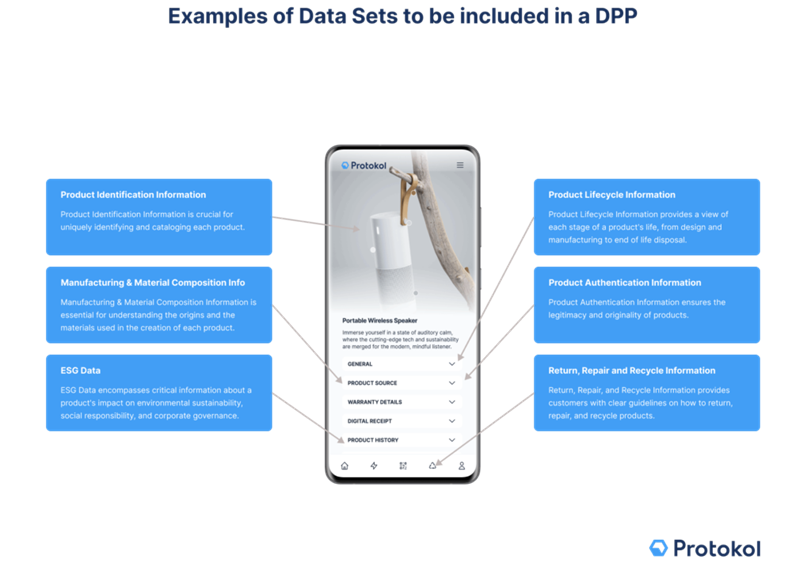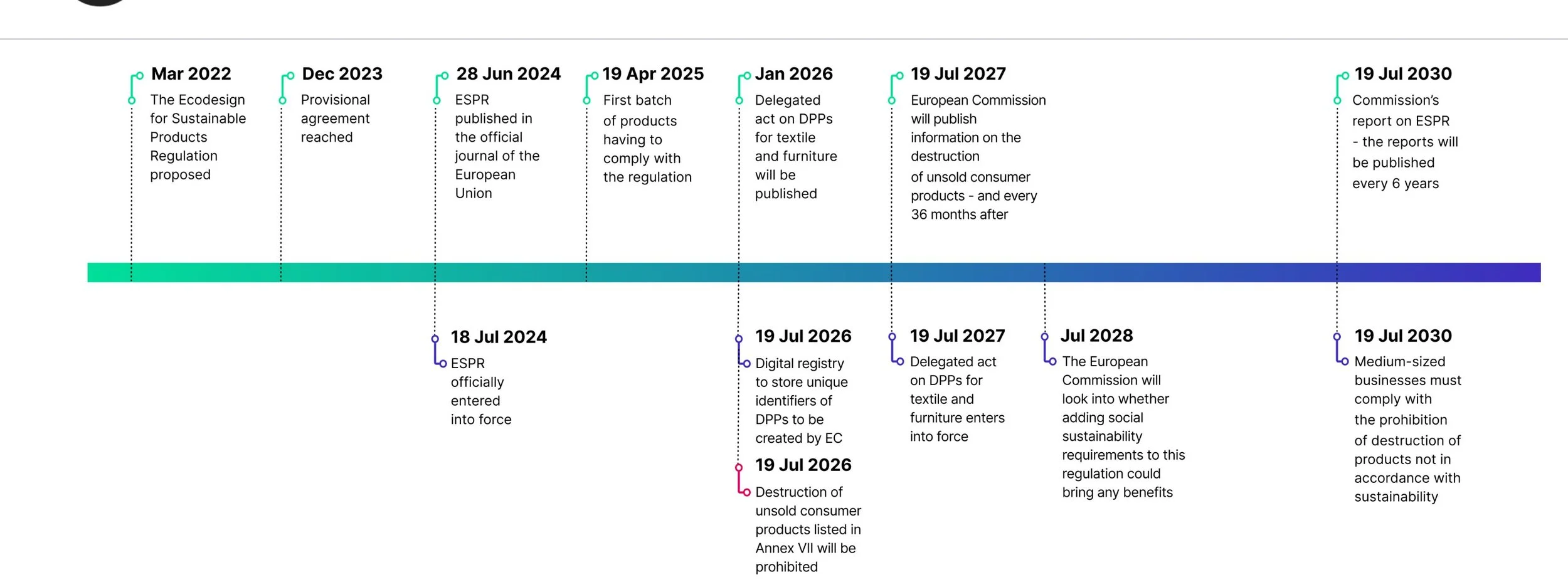Digital Product Passport for your products
Digital Product Passports (DPP) is a digital profile utilized for collecting key product information about materials, manufacturing environmental impact, sustainability and end of life or next use functionality. The DPP requires gathering data from across the supply chain including raw material sourcing and manufacturing processes that is shared amongst a number of stakeholders and participants. This information is designed to help businesses, consumers, and other stakeholders understand the environmental impact of products, as well as their materials, performance, and recycling potential. The graphic from Protokol demonstrates what data sets could be part of a product DPP.
From numerous EU legislative acts and initiatives, many industries have been reviewed and prioritized to be part of the first wave to adopt DPP’s. On 4/16/25 the EU published an update for the 2025-2030 working plan and can be found at this link: ESPR+2025-2030+working+plan.pdf
Ecodesign for Sustainable Product Regulation (ESPR) will impact manufacturers (EU and non-EU), importers, distributors, retailers and service providers. The list of industries will include batteries, textiles, electronics, furniture, tires, toys and others. The following graphic from Circularise is a broad representation of product categories.
The final timeline is still being defined with the following graphic from Kezzler providing the best representation for DPP implementation. Comment: The ESPR regulation and associated DPP will impact any product made/sold in the EU market and companies exporting products to the EU for sale. In addition, suppliers making sub-components for a product will be participants in the ESPR/DPP process through data requirements from their customer.


